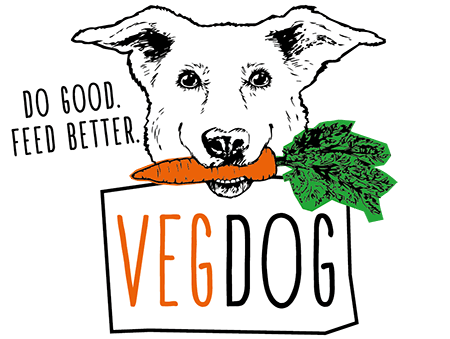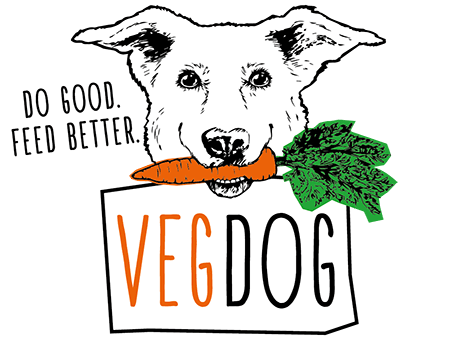
What is speciesism?
In this article you will learn:
- What Speciesism is
- Who contributed to the fundamental shaping of the term
- Where to Find Speciesism
- How you can fight speciesism with vegan dog food
 Author: Carla Steffen
Author: Carla Steffen
 Proofreader: Veronika Hajek
Proofreader: Veronika Hajek
Updated: 01.10.2024
Published: 25.06.2024
Goodbye speciesism. All beings are beautiful, treat them equally.
In this article you will learn:
- What Speciesism is
- Who contributed to the fundamental shaping of the term
- Where to Find Speciesism
- How you can fight speciesism with vegan dog food
From shaggy dogs to majestic cows, from clumsy ponies to slightly snobby cats: every animal has its own personality, its own preferences and quirks. Some are big, some small, fluffy or shaggy, fast or slow. But despite their diversity, they have one crucial thing in common: they are all valuable, sentient beings. Not the same, but equal: this fact forms the basis for the considerations surrounding the topic of speciesism.
Speciesism is difficult to pronounce and even more difficult to understand. It is a form of discrimination based on the assumption that belonging to a certain species determines the value of a living being and how it should be treated. Why are pets loved and pampered while so-called farm animals are fed, eaten and processed? This topic is underrepresented in society despite increasing awareness of climate and animal protection.
A definition
The term speciesism refers to a form of discrimination in which living beings are discriminated against solely on the basis of their species or kind. In short, speciesism refers to the discrimination of non-human animals. Animal suffering and inappropriate treatment are therefore forms of speciesism, as animals are given less consideration due to the fact that they do not belong to the human species, or more precisely to Homo sapiens.
Speciesism is therefore particularly rooted in animal ethics or the animal rights movement. Opponents of speciesism call themselves anti-speciesists.
Richard Ryder and Peter Singer: philosophers who established the concept
“Isn't it about time that civilization's admirable ethical interest in human rights should be extended, quite logically, to our neighboring species?”~ Richard Rydner ( https://simorgh.de/ar/richardryder.pdf )
Richard Rydner based the concept of speciesism on this principle. Ryder assumes that an individual's ability to feel pain, regardless of ethnicity, species or gender, for example, gives them the right to be included in the moral community. According to Ryder, every individual who is capable of feeling pain has the right not to experience suffering. Inflicting suffering on an individual without their consent would therefore be discrimination and thus speciesism.
Peter Singers specifies the term by comparing it with other forms of discrimination:
“The fact that certain beings do not belong to our species does not entitle us to exploit them, and likewise the fact that other beings are less intelligent than we are does not mean that their interests can be disregarded.” ( http://philocast.net/wp-content/uploads/2019/09/Singer-2008-Rassismus-und-Speziesismus.pdf )
Singers also refers to the ability to suffer, which includes the right to have interests taken into account.
Examples of Speciesism
There are several examples of speciesism in our society today. These include:
- The exploitation of animals for food
- The exploitation of animals for clothing materials
- The destruction of the habitat of certain animal species for or wood.
Specifically: the topic of dog food. There has been far too little discussion about the fact that other sentient beings have to die in order to satisfy a very one-sided love of animals. This is speciesism as it is written in a very scary fairy tale book. It is high time to overcome this way of thinking. At VEGDOG, we therefore only produce vegan dog food such as GREEN CRUNCH in order to avoid any suffering - be it for farm animals or pets.
A World Without Speciesism
We love our dogs, no matter how beautiful or shaggy they are. And this love should not be selective - it should also include all other living creatures. Animals are not a raw material, they are equal co-inhabitants on this planet. This idea is at the heart of VEGDOG. We are actively committed to better animal welfare and with our products we make it easy for everyone to combine love of dogs and love of animals without speciesism.
We are dreamers and doers. That's why we have a rescued flock of sheep, adopt ponies and support animal sanctuaries. What would a world without speciesism look like? Nothing is as powerful as an idea whose time has come. And we believe the time is ripe. 💚
Frequently Asked Questions (FAQ)
What does speciesism mean?
Speciesism is a form of discrimination, and thus of disadvantage towards other beings, which is based exclusively on the species.
How do I avoid speciesism?
Speciesism can be avoided by not inflicting suffering on any creature capable of feeling pain without consent. This means, for example, that farm animals should not be exploited for food.
To what extent does VEGDOG work against speciesism?
VEGDOG produces exclusively vegan dog food to avoid the suffering of farm animals. We also provide information about false claims and the benefits of vegan dog food.








